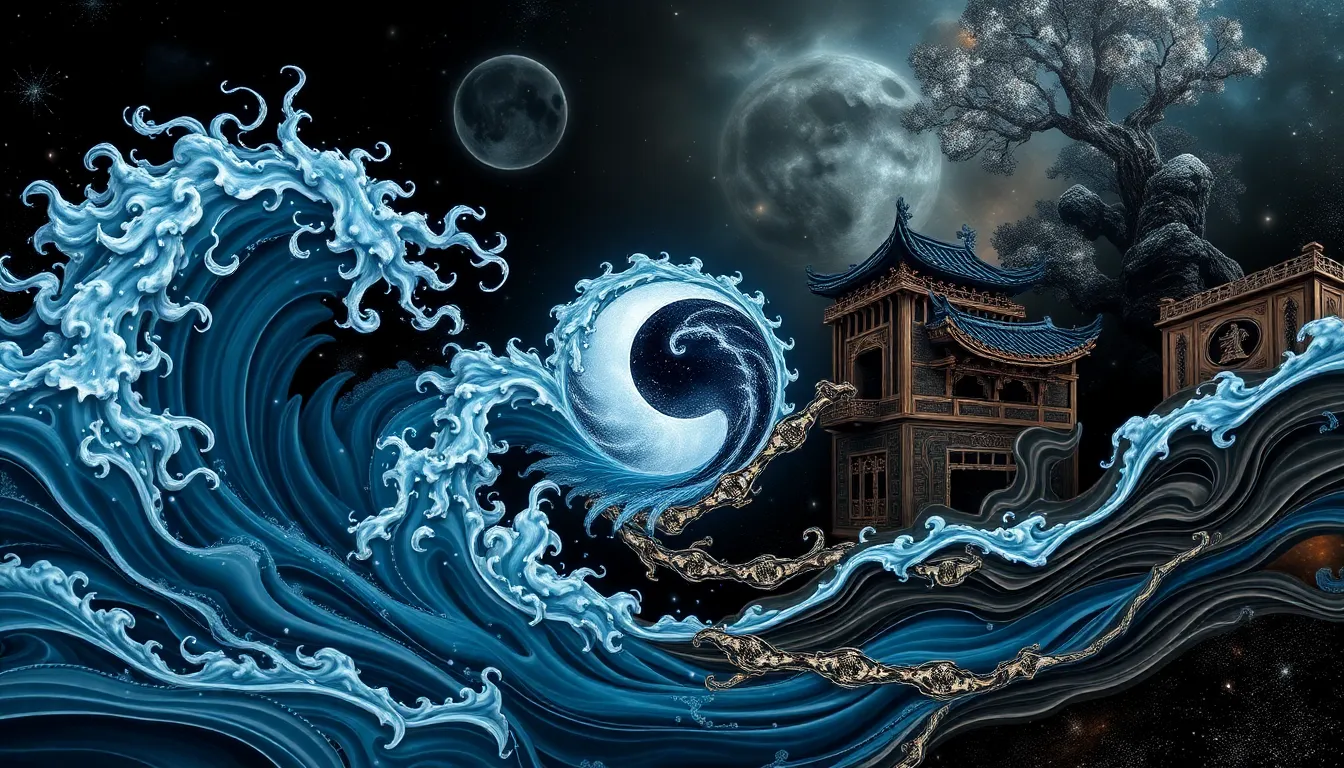The River of the Wild: Myths of Nature’s Untamed Spirit
I. Introduction to Nature’s Myths
Myths have long served as a bridge between humanity and the natural world, providing narratives that explain the inexplicable and offer insight into the mysteries of life. In the context of nature, myths are stories that encapsulate the beliefs, values, and fears of cultures, often focusing on elements of the environment that profoundly impact human existence.
Rivers, in particular, hold a significant place in various cultures around the world. They are not merely sources of water; they are often seen as the lifeblood of civilizations, shaping landscapes and societies. The river is a powerful symbol of life, movement, and the untamed spirit of nature.
II. The River as a Cultural Archetype
Throughout history, rivers have been central to the mythologies of numerous civilizations. They are often depicted as sacred, powerful, and sometimes even fearsome. Let’s explore some of the most notable rivers in mythology:
- The Nile in Egyptian mythology: Revered as a giver of life, the Nile was personified as a god, Hapi, who represented fertility and abundance. Its annual flooding was seen as a divine blessing.
- The Ganges in Hindu beliefs: Known as Ganga, this river is considered sacred, embodying purity and spiritual cleansing. Many myths surrounding the Ganges highlight its descent from the heavens to Earth, symbolizing the connection between the divine and the earthly.
- The Amazon in South American lore: In various indigenous cultures, the Amazon River is often viewed as a living entity. Myths speak of its spirit and the creatures inhabiting it, emphasizing the river’s role as a protector of the rainforest’s biodiversity.
Common themes associated with rivers in myths include creation, destruction, fertility, and the passage of time. These themes underscore the essential role rivers play in the human experience.
III. The Untamed Spirit of Rivers
The river is often portrayed as a living entity, a force of nature that embodies both beauty and chaos. Many cultures believe in river spirits or guardians, ethereal beings that watch over the waters and those who dwell nearby. Folklore is rich with stories that depict the river’s unpredictable nature, illustrating how it can nurture life but also unleash its fury.
These stories serve as cautionary tales, reminding us of the river’s untamed spirit. They teach respect for the power of nature and the importance of living in harmony with it.
IV. Nature’s Lessons from River Myths
River myths offer profound lessons about life and existence:
- Symbolism of change and transformation: Rivers are ever-flowing, constantly changing course and shape, symbolizing the inevitability of change in our lives.
- The duality of beauty and danger: While rivers can be serene and beautiful, they can also be treacherous, reminding us of the balance between safety and risk.
- The river as a metaphor for life’s journey: Just as a river travels through various landscapes, our lives take us through different experiences and challenges.
V. Indigenous Perspectives on Rivers
Indigenous cultures around the world have a deep, spiritual relationship with rivers, often viewing them as sacred entities. Myths from these cultures reflect a profound understanding of the interdependence between humans and nature.
For many indigenous peoples, rivers hold spiritual significance and are embedded in their oral traditions. These narratives often include creation stories, teachings about ethical living, and the importance of respecting the natural world.
VI. The Role of Rivers in Environmental Narratives
Myths not only reflect cultural beliefs but also highlight the balance between humanity and nature. Contemporary environmental narratives often draw upon ancient myths to advocate for stewardship and protection of natural resources.
Rivers serve as a barometer for ecological health. Their conditions reflect the impact of human activities and climate change, making them central to discussions about environmental sustainability and conservation.
VII. The Interplay of Myth and Reality
Throughout history, myths have influenced real-world actions, including river conservation efforts. Many rivers are named after mythological figures, establishing a connection between cultural heritage and environmental responsibility.
Case studies demonstrate how storytelling can shape public perception and policy regarding rivers, highlighting the power of narratives in driving ecological awareness and change.
VIII. Contemporary Interpretations of River Myths
Modern literature and art continue to reinterpret traditional river myths, often blending them with contemporary themes. The influence of technology and media has transformed how these stories are told, making them accessible to broader audiences.
There is a growing resurgence of interest in eco-mythology, where the stories of rivers and nature are used to inspire environmental action and awareness in the face of climate change.
IX. The Future of Rivers and Their Myths
As climate change increasingly impacts river ecosystems, the narratives surrounding them are evolving. New myths may emerge that reflect the challenges and transformations faced by rivers in a changing world.
Preserving river narratives is crucial for future generations, as these stories hold the wisdom of our ancestors and the keys to sustainable living.
X. Conclusion: Embracing the Wild Spirit of Rivers
In conclusion, rivers are more than just waterways; they are powerful symbols in our cultures, embodying the untamed spirit of nature. Their myths teach us invaluable lessons about life, change, and the importance of living in harmony with the environment.
As we navigate the challenges of the modern world, let us heed the call to protect our rivers and embrace the wild spirit they represent, ensuring their vitality for generations to come.



